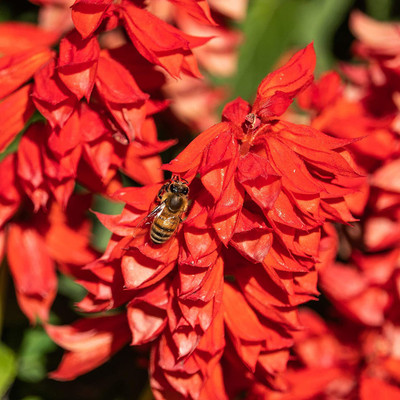VibeX ® VMR-67 Sage Scarlet Seed Seed(200 per packet)
Quick Overview
Product Price Comparison
Sow the seeds at least ┬╝ inch deep in rich loamy soil rich in nitrogen. Sage can also tolerate transplanting the seedlings once the seeds have germinated after 20-25 days of sowing.Create a space in a pot and sow the seeds evenly and cover them a layer of soil. Water the pot/container regularly keeping in mind that the growing medium must be moist for seeds to get all the nutrients from the soil.Keep the pot in the partial shade till germination and move to a sunny spot once the seeds have germinated. You can remove the week seedlings to promote a healthier pot of the herb.Plant sage near cabbage or carrot as a companion plant but sow away from cucumber plants since they are sensitive to aromatic plants.GROWING REQUIREMENTSPESTS & DISEASESFungal diseases are one of the most common problems that one might face while growing sage due to crowding of plants and overwatering. One thumb rule to go by is to water the seedlings at the roots only. Additionally, mealybugs, whiteflies, and sap-sucking bugs can also affect the sage plant. Prune the affected part of the plant to address these issues or use a neem spray.SOILSage prefers rich loamy soil for better growth. The pH of the soil must range between 6.0 and 6.5.SPOTSage needs direct sunlight & relatively dry weather to grow well but can also tolerate mild shade. Make sure that the drainage of the pots is in place to avoid issues with roots. You can also consider adding a few pebbles at the bottom of the pot to improve drainage.TEMPERATUREThe ideal temperature for growing sage should range between 18ŌĆō21┬░C(65ŌĆō70┬░F).WATERINGSage is not too demanding when it comes to watering frequency. Water on alternate days once seeds have germinated.


